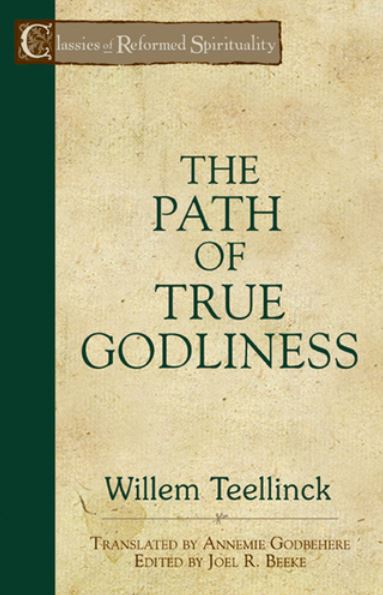Books In Brief – The Path of True Godliness

Parallel to English Puritanism and the Scottish Second Reformation, there was a movement in the Netherlands called the Dutch Further Reformation (1600-1784). The reformed faith which was newly discovered in the Netherlands in the 1540’s and 1550’s was already fading by the late 16th century, as children began to take their parents and grandparents faith for granted, as a coldness crept into the Church. The Lord raised up a number of ministers, who felt a great burden due to the backsliding of the Dutch church, and were used of the Lord to stir up the people during this period. The Dutch Further Reformation moved the backsliding Reformed Church from mere Doctrine, to applying these truths to a reformation in life and practice.
As the years went by, thousands of English books had been translated into Dutch, but it was not until the early 1990’s that Dutch Reformation books began to be translated into English. In 2003, Willem Teellinck’s The Path of True Godliness was published in English. Teellinck is considered to be the father of the Dutch Further Reformation and had a connection with Scotland, as he studied law at St. Andrews.
The Path of True Godliness, Teellinck’s major work on sanctification, is considered by Joel Beeke to be one of the best books ever written on how to live out the Christian life. Teellinck defines the character of true Godliness, before dealing with the kingdom of darkness opposing the practice of godliness and the kingdom of grace promoting godliness. He then deals at length with both the God given means of practicing godliness and the motives to practicing godliness.
Teellinck brings Scripture to bear in such a practical, challenging and applicable manner, that you would never realise you are reading a book originally published in 1621. For instance, when the enemy comes, Teellinck vividly illustrates the difference between those who do and those who do not practice Godliness, “the courageous and cowardly soldiers may look the same at recruitment, but their true nature is revealed when the enemy comes.” He goes on to address the matter of our immediate response to falling into sin, which is something that is seldom, addressed these days, “as soon as we discover that we have been overcome by some sin, we must jump back from it as quickly as if we had fallen into a fire.”
Teellinck states that many professing Christians remain weak, as we do not actively practice Godliness. Amongst the many encouraging reasons to practice Godliness, he states, “by practicing Godliness, we are being trained to serve the best master, to do the best work, and to bring forth the best fruits.”
Is it any wonder that the church today is so weak when so many of us are worldly and so few of us, by God’s grace, seek to practice Godliness? “…godliness is profitable for all things, having promise of the life that now is and of that which is to come” (1 Timothy 4:8).
Second hand copies of the book can be purchased (Here).
To subscribe to Hebridean Outpost and receive future content (Click Here).


Thanks for this Scott.